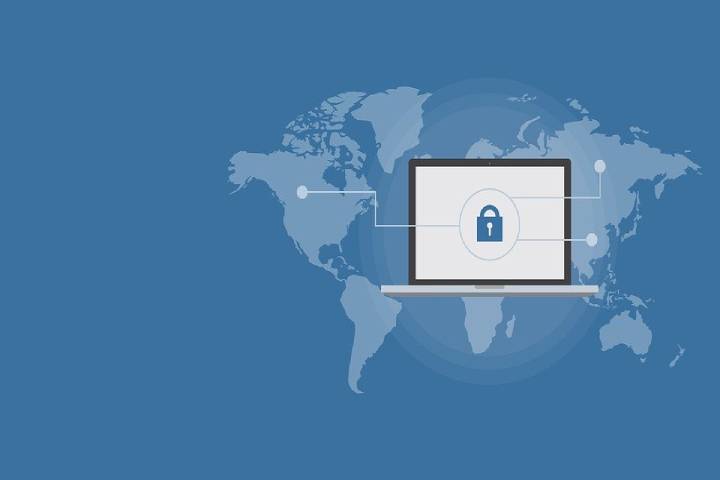Internet, or commonly known as “the Net,” is a global system of computer networks. If one has permission, any user at any computer can get the information desired. It connects people, lives, stories, and even businesses. Mostly a business network and a source of information. Varying on one’s need, the importance of the internet in modern times is unquestionable.
In its way, the internet helps make people’s lives more convenient and efficient. It helps us share any information and connects us with the rest of the world in the fastest way possible. However, the internet also poses risks as much as it is a help. Here are some of the safety rules we might want to consider in using the internet.
Table of Contents
1. Keep Personal Information Limited
Personal information, or also known as personal data, is any information associated with any identifiable living individual. Any recorded data about a person such as name, phone number, address, nationality, race, origin, ethnicity, sex, age, sexual orientation, marital status, political beliefs and association, skin tone, health care history, education, blood type, financial stability, criminal history, and even employment history is considered personal information.
Deception is one of the things you wouldn’t want to encounter when using the internet. It is possible to happen to anyone, mainly when a random person obtains access to your personal information and poses to be you online. Identity theft carries severe and lasting consequences for both digital privacy and online reputation.
2. Have a Secure Internet Connection
Internet access is one’s capability to connect to the internet using computers and other devices. It is a broad zone network that connects our computer systems across the globe. There are different types of internet connections, such as DSL (Digital Subscriber Line), wireless or wifi, cellular, and satellite.
Although no network is not vulnerable to any attacks, a stable network security system is necessary for protecting client data. A secured internet connection prevents the risk of being a victim of sabotage and data theft. Therefore, it is strongly advisable to have a secure internet connection at home or work.
3. Set Strong Passwords
A password is a combination of characters used to verify the identity of a user during an authentication process. It is created to be known to allow a user to obtain access to a website, application, or device. Passwords can differ in length and usually contains alphanumeric and even special characters. It can also be called as passcode when you only use numbers and passphrase when the password uses more than one word.
A strong password is crucial in providing essential protection from any fraudulent activities or even identity theft. It ensures the confidentiality and security of any data that is saved in various servers and workstations.
The best way to set a password is to make sure it isn’t effortless to guess, and you may even make it long and complicated, but make sure it is something you will be able to remember. Also, never use untrusted devices when logging in to any of your online accounts.
4. Keep Your Antivirus Program Up to Date
An antivirus program or software serves as the “policeman” of the computer system. It is a program that is used to detect and remove suspicious malware and computer viruses hence the name. Its primary function is to check all the data, software applications, and all files that are being transmitted to your device.
It is vital to keep your antivirus program updated to make sure you have all the access to its new features. There’s a need for you to purchase those expensive antivirus programs as there are also various firewall freeware and antivirus programs being offered for free. It would be best if you had an eye for it.
5. Be Careful in Online Purchases
Online shopping is a way of online commerce that allows its consumers to buy any goods or services from a specific seller using a web browser over the internet. It has grown famous over the years due to the convenience it has given to most of the consumers from the comfort of their home.
As online shopping grew bigger and bigger over the years, the cases of online theft and fraud also increased rapidly. A few of the things we need to check before purchasing online are the business itself, and we should only shop where you trust, check out the webpage security, and many more. Make sure always to perform a necessary check and observe precautions before purchasing online.
6. Conclusion
Internet Safety is essential as it maximizes the users’ safety and keeps away any security risks on any private information associated with the internet. One of the best reasons why we should keep a secured internet is during instances when we are accessing online banking services and shopping. Internet technology had a significant impact on our lives since it has been introduced, and it is also essential to take a look and be vigilant of the cons of using it.
Tech Trends
Related posts
Leave a Reply Cancel reply
Hot Topics
Categories
- Ads (5)
- Animes (25)
- Artificial Intelligence (AI) (35)
- Augmented Reality (AR) (10)
- Automotive (9)
- Bitcoin (16)
- Blockchain (24)
- Business (244)
- Business Intelligence (3)
- Cloud Computing (23)
- Computer (128)
- Concrete Technology (1)
- Cryptocurrency (10)
- Cybersecurity (42)
- Data Science (9)
- Database (4)
- DevOps (6)
- Digital Marketing (76)
- Digital Workplace (14)
- Ecommerce (1)
- Education (28)
- Electric Vehicle (EV) (1)
- Electronics & Hardware (17)
- Entertainment (42)
- Fabrication (3)
- FAQ's (1)
- Finance & Marketing (47)
- Gadgets (35)
- Games (8)
- Gear (29)
- HTTPS (1)
- Industry (46)
- Information Technology (90)
- Internet (413)
- Internet of Things (IoT) (41)
- Job (25)
- Machine Learning (6)
- Marketing (92)
- Mobile Apps (21)
- Movies (11)
- Natural Language Processing (6)
- News & Trends (109)
- Programming (4)
- Science & Technology (235)
- Security (81)
- SEO (56)
- Services (36)
- Social Media (73)
- Software (99)
- Sports (1)
- Technology (306)
- Telecom (6)
- TikTok (5)
- Tours & Travels (9)
- Uncategorized (11)
- Virtual Reality (VR) (7)
- VoIP (4)
- Web Technology (42)
- Workforce (17)
- Workspace (6)



Stay connected